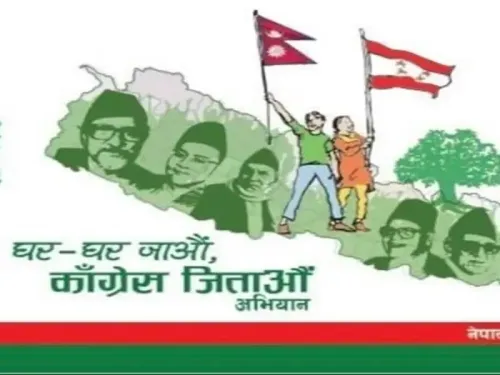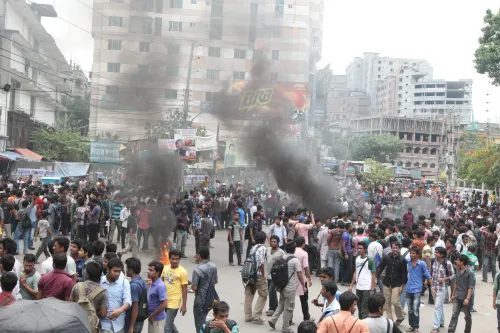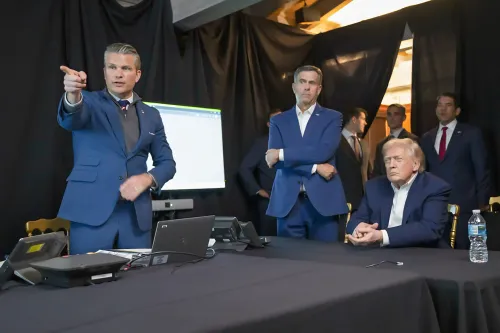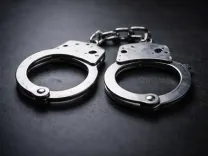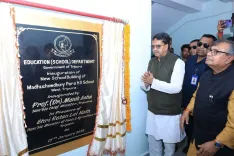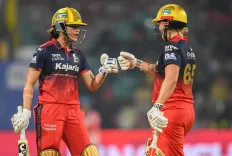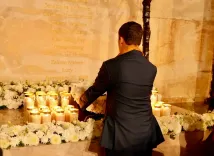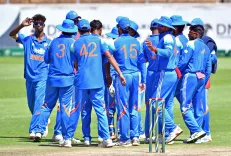South Korea: Detained Impeached President Yoon Faces Further Inquiry
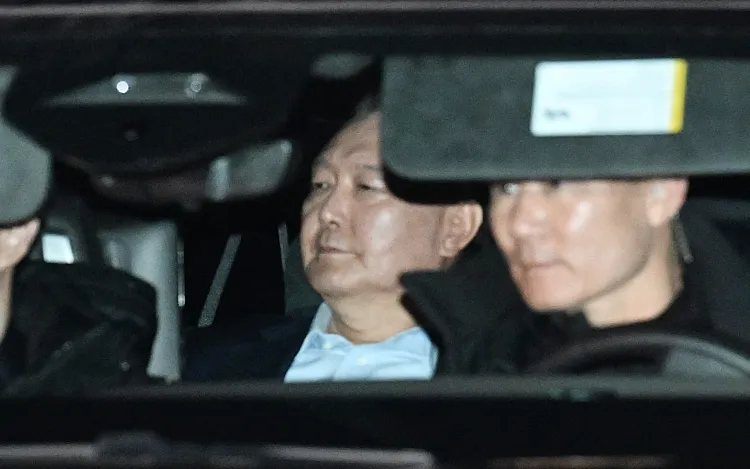
Synopsis
Key Takeaways
- Yoon Suk Yeol was detained following questioning about his martial law declaration.
- The Corruption Investigation Office is leading the investigation into Yoon's actions.
- Yoon faces charges of insurrection and abuse of power.
- His legal team is contesting the legality of his detention.
- Protests have erupted outside the detention center amid Yoon's arrest.
Seoul, Jan 15 (NationPress) The impeached President of South Korea, Yoon Suk Yeol, was taken to a detention facility late on Wednesday where he will remain overnight prior to additional questioning regarding his brief declaration of martial law.
Yoon was escorted to the Seoul Detention Centre located in Uiwang, approximately 22 kilometers south of the capital, after enduring more than 10 hours of interrogation at the Corruption Investigation Office for High-ranking Officials (CIO) in nearby Gwacheon.
According to the CIO, "The questioning of President Yoon concluded at 9:40 p.m."
Yoon declined to respond to inquiries about his martial law declaration made on December 3, as stated by the CIO. Investigators plan to continue questioning him on Thursday, aiming to file for a formal arrest warrant within 48 hours from his detention time of 10:33 a.m. on Wednesday.
As the first sitting president to be arrested, Yoon was taken into custody by investigators at his official residence in central Seoul after their initial attempt to detain him earlier in January was thwarted by a standoff with presidential security personnel, as reported by Yonhap news agency.
The interrogation sessions were conducted inside a room at the CIO headquarters and were overseen by deputy CIO chief Lee Jae-seung, among others, with one of Yoon's lawyers present. The sessions were not recorded on video due to Yoon's objections, according to the CIO.
Yoon, who is currently suspended from his duties following his impeachment by the National Assembly on December 14, faces serious allegations of insurrection and abuse of power.
He is accused of deploying troops to the National Assembly after declaring martial law on the night of December 3 to prevent lawmakers from rejecting the decree.
The president has justified his martial law declaration as a necessary "act of governance" aimed at warning the main opposition Democratic Party about what he described as their overreach of legislative power.
In a recorded video message released after his arrest, Yoon expressed defiance, stating, "Although this is an illegal investigation, I chose to appear at the CIO to avoid unnecessary violence."
Yoon has continuously disputed the legitimacy of the CIO's investigation, emphasizing that the agency lacks proper authorization to probe insurrection charges.
Following the questioning, Yoon's legal team announced they have sought a review of the legality of his detention with the Seoul Central District Court, instead of the Seoul Western District Court that issued the detention warrant.
The choice of court was made with the understanding that prosecutors will present their indictment to the Seoul Central District Court should they decide to proceed with charges.
Despite Yoon's resistance to the investigation, he intends to appear before the Constitutional Court to advocate for himself during a trial addressing his potential removal from office or reinstatement.
Legal expert Seok Dong-hyeon, a longtime friend of Yoon, indicated to reporters that it is likely he will remain in custody due to the CIO's strict detention methods, but he believes Yoon will participate in the trial without fear.
As the CIO's questioning is slated to extend through Thursday, Seok suggested that the president may not be able to attend the second formal hearing of the trial scheduled for that same day.
Judicial sources later reported that Yoon's lawyers have submitted a request to the Constitutional Court to postpone the hearing.
The arrest came after protracted discussions between investigators and Yoon's team at his residence concerning the methods for his detention and transport for questioning.
Investigators utilized ladders to access the presidential residence compound after facing resistance from the Presidential Security Service, which erected a barricade with vehicles at the entrance. They were also confronted by a group of lawmakers from the ruling People Power Party and Yoon's lawyers.
Some investigators appeared to be attempting to gain access to the compound through a nearby hiking trail.
One of Yoon's lawyers, Yun Gap-geun, criticized the investigators' actions, describing them as "illegal" and asserting, "This is not a fair enforcement of the law."
Approximately 3,000 police personnel were deployed to ensure access to the compound, leading to physical confrontations between investigators and Yoon's supporters. Emergency medical teams arrived to assist a middle-aged woman who collapsed during the chaos.
For weeks, thousands of demonstrators supporting or opposing Yoon's arrest have gathered outside the compound, with some even camping out in freezing conditions.
Upon hearing news of Yoon's detention, his supporters reacted strongly, shouting insults at anti-Yoon protesters and the "commie CIO."
Some demonstrators moved to protest directly outside the CIO office, with crowds forming on the sidewalk across from its entrance by 11:30 a.m.
In the evening, a man self-immolated near the CIO and was rushed to a hospital in critical condition. It remains unclear whether this act was connected to Yoon's arrest.


